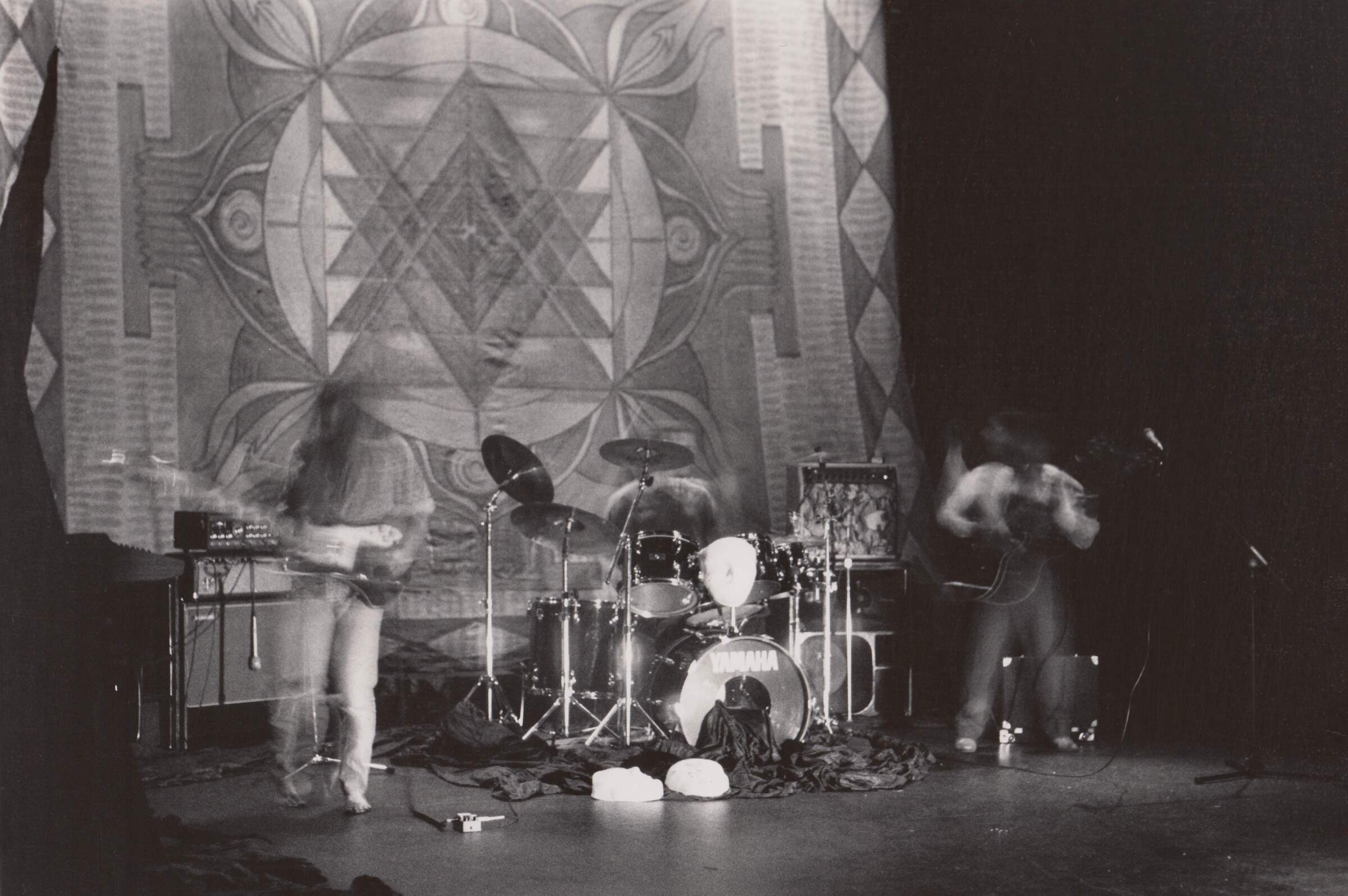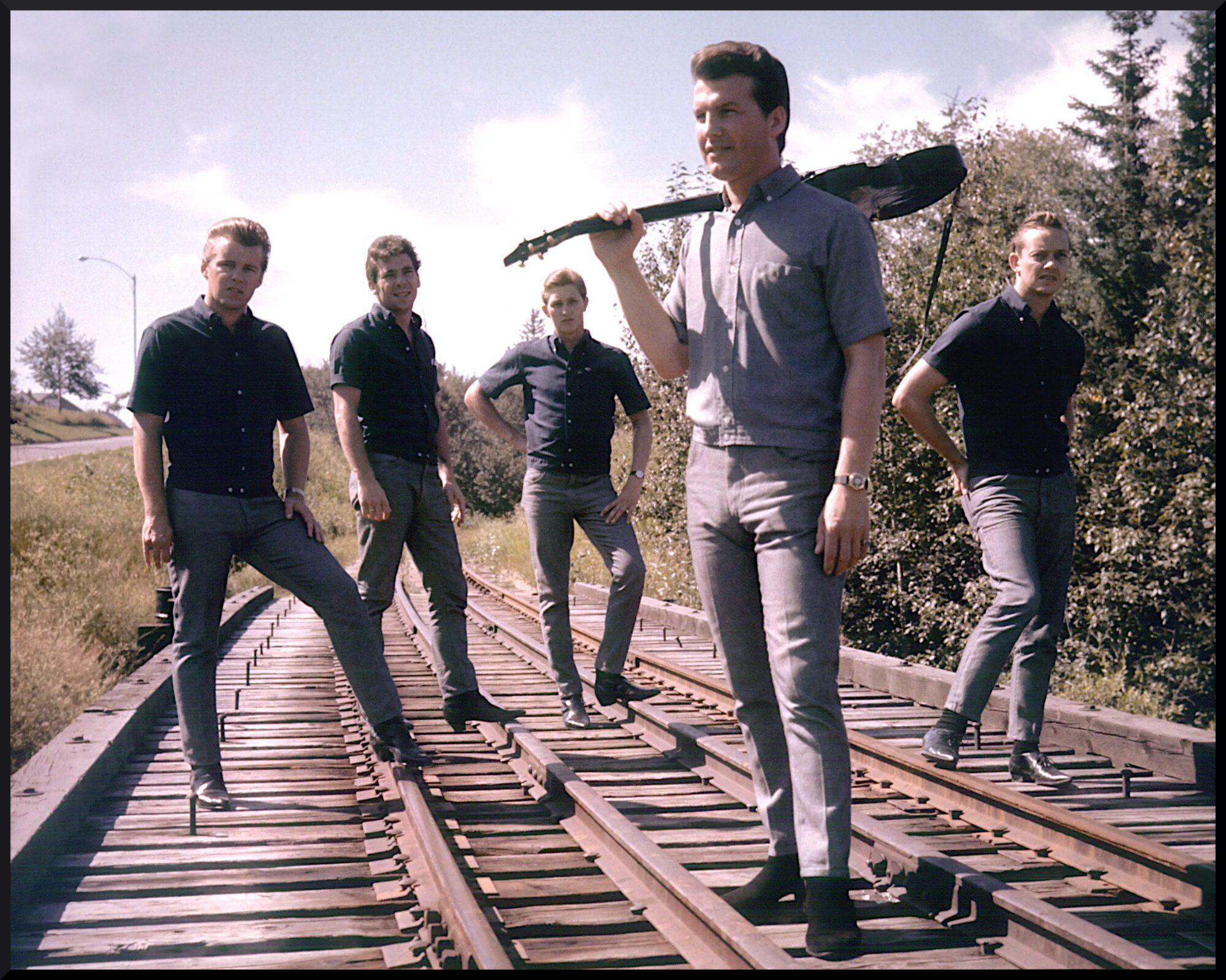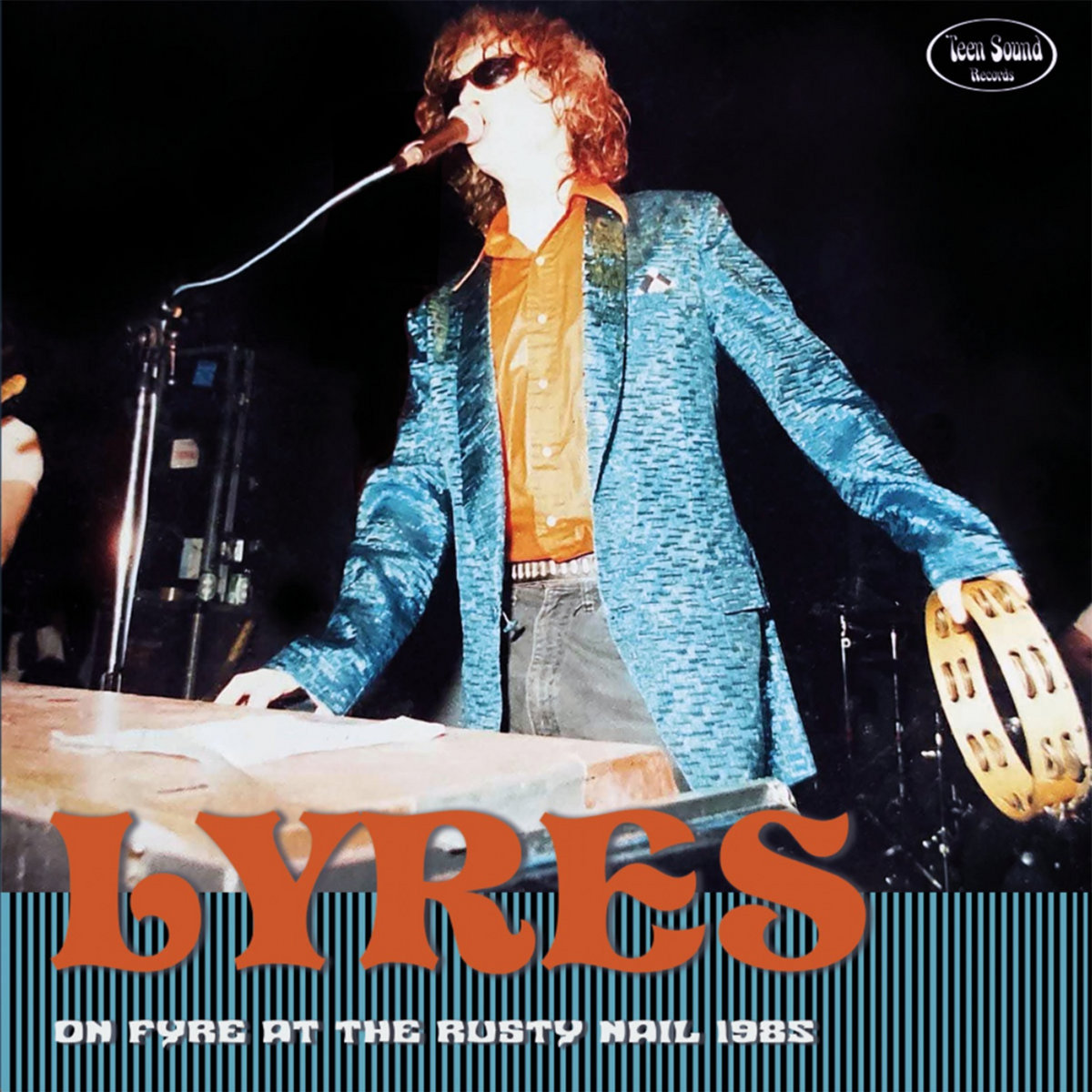Dodson and Fogg | Chris Wade | Interview
Chris Wade is an English musician, filmmaker, writer and artist based in Leeds. He is the chap behind the critically acclaimed music project Dodson and Fogg, which has featured Nik Turner, Toyah and Celia Humphris. His first film The Apple Picker was selected for Sydney World Film Festival and he has made documentaries on such figures as Orson Welles, George Melly and Charlie Chaplin which have been on TV and streaming services. His audiobook comedies been narrated by the likes of Rik Mayall and Matt King, and has a side music project with Nigel Planer.
“For me it is more about the surrealist idea of both the reality and the dream existing together”
Chris, since we last spoke in 2014, you’ve been as prolific as ever, releasing nearly two dozen albums, several EPs, published countless film and music biographies, and even directed a few short films and documentaries. You’ve also created many art prints, and recently published your first book of poetry. Did the current lockdown contribute to your flux of creativity by forcing you to take advantage of the isolation to be more creative than usual? Or is it just in your nature to always be creating something new, whether it be a book or a film or an album?
Chris Wade: Howdy Jeff. Actually, funnily enough, I am not sure it made much difference because I work from home every day anyway and am quite isolated in my work from others, unless I travel for a documentary, interview someone on the phone for a book or am collaborating musically with another person. In some ways in fact I had to fight for more time to myself because my six year old was off school during the whole first lockdown. But I love being creative and starting new projects, going into new areas. It keeps me excited and interested. I must say though, that the terrible virus was always there, ever present in my mind and it was hard not to think about all the poor people dying everyday. Most of the music I made was plagued with a kind of sadness about COVID, that’s what I realised afterwards.
After inviting collaborators to contribute music and/or vocals on most of your earlier albums, the recent ones are mostly completely solo efforts. Did you envision them to be solo projects when you were writing them or did they evolve that way due to schedule conflicts or unavailability of performers you asked to participate?
Well to be honest when I did the first Dodson and Fogg album it wasn’t really in my mind that I would be doing more. I tried my hand at recording a bit of music on my PC, as I’d not recorded music since my teens on the old 4-track tape machine. When I had a few I sent them to Celia Humphris (now Drummond) who was the singer for Trees. When she said she liked them and wanted to add some backing vocals it kind of encouraged me to do more and then I had the album. I went through a phase of really getting a lot of joy out of inviting other people on to the albums, and then after a while I eased into just recording them on my own and only getting people in every now and then. I didn’t really give it much thought. One day I realised I’d not had a guest in years. I just enjoy playing and recording, but I would definitely have more people on future albums again.
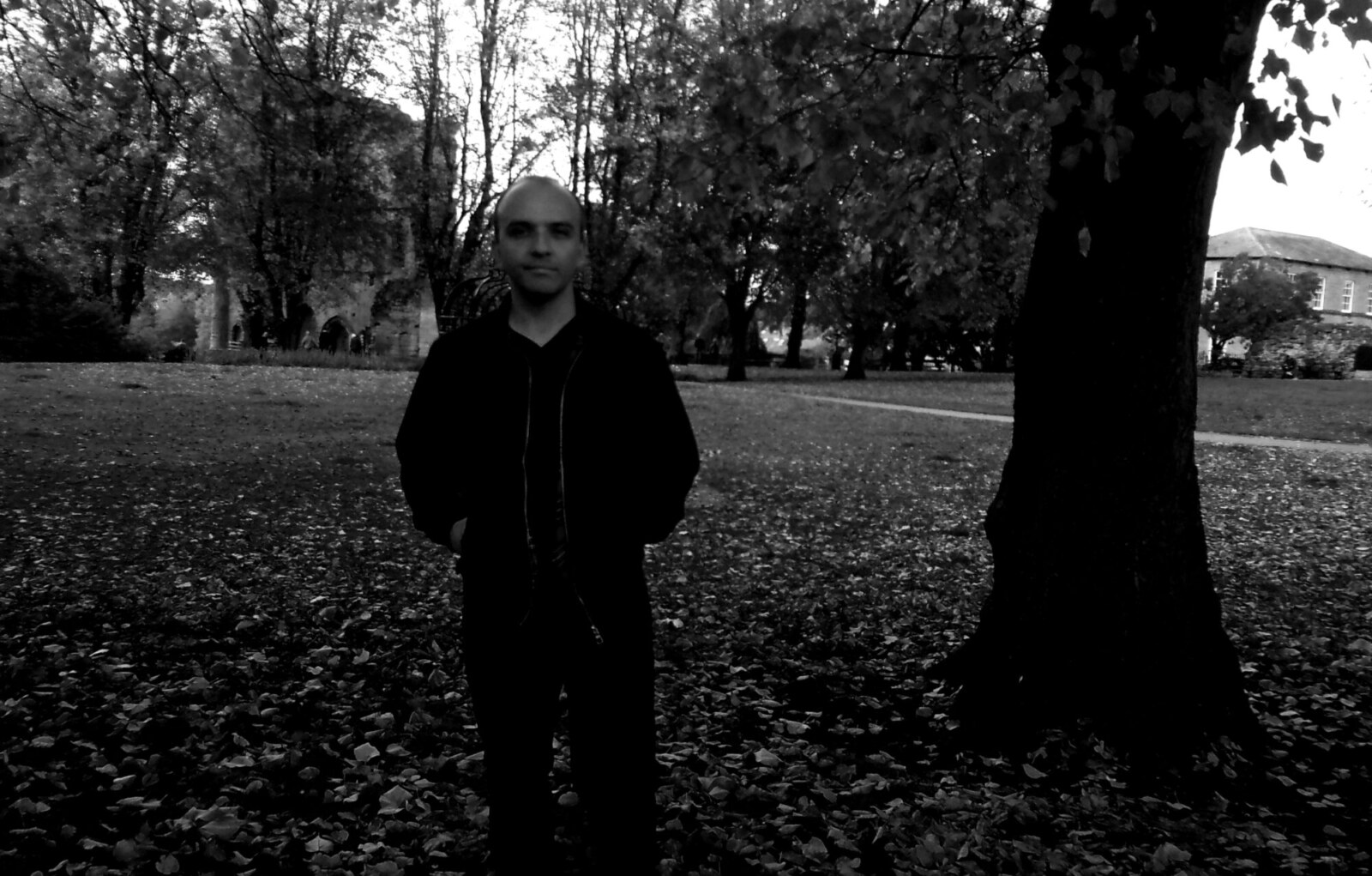
Your collaborations have mostly been done via electronic/digital sharing of bits and pieces which you edited together into the final products. So I imagine the current virus situation wouldn’t impact your efforts to continue working that way. But do you find it harder to be creative and come up with new ideas for albums with so much heavy baggage hanging over everything these days?
It didn’t affect my work time too much, but it was nice having my daughter at home, playing with the toys with her, watching films and helping with her home schooling in between music, film and book projects. And to be honest, for me and many others, making music, drawing, painting or just being creative is a good way to escape reality a little while. With COVID, as I am sure it did for many others, through March and April I was affected by the amount of death across the world and in the UK. Making music was definitely a way to block it out for a bit. It might have inspired me to make more music to be honest. I don’t mean that in a pretentious “creative people deal with things better” way, I just mean that it happened to work for me. It was a horrible time, and unfortunately it looks like we are heading for a similar era right now.
You’ve created a series of what you call “art films” over the last few years, some of which were joined by an accompanying album. Is this process of simultaneously creating an film and its accompanying soundtrack something you would like to pursue?
Well for the last one I did, ‘A Full House of Empty Rooms’, I did make all new music for it (apart from a couple of pieces) but as it was quite short it didn’t need too much music. I did mostly atmospheric pieces for it, but that was great fun. And I just made a short film to go with my latest EP, ‘Watch the Moon’, but for that I recorded the songs first and went through my archive of visuals and filmed some new bits to go with the songs.
They were both really enjoyable things to do. I would love to try that one day, make a film while doing the music from scratch at the same time. There are all kinds of things I would like to try, and because budget isn’t a problem, and I am not under pressure from labels or companies, I can pretty much try whatever I like. That’s what is so exciting about doing my work. If others like it it’s a bonus. But ‘Watch the Moon’ is a direct reaction to COVID and how it made so many people feel lost and scared.
Which typically comes first, the music or the images and does one influence the creative process of the other or do you sit down after finishing one (say, an album) and then start to think of images to work alongside the music? Or create a film and say, “Hey, this could use a soundtrack and I’ve been working on these ideas…”?
When I am making a film, it is always the image that comes first. Once I have a few images or little scenes that I have filmed spontaneously, I start to think of other ideas, threads running through it, scenes which might connect it, and then the music and sound effects. Sometimes I go through recent recordings and realise one will fit well, other times I make new pieces. They are really fun to do and they kind of satisfy a few creative urges in one. I love coming up with surreal scenes, especially with my dad [Andy] who is always a big part of these films, and my best mate Shawn Dimery, who I have known since we were 6. They are very liberating and freeing, especially in the disconnected surreal manner I do them, because they come together over time. I am sure there are other filmmakers who make films this way too. It’s just a really rewarding process.
“It’s about staying alive in the work, whether it’s a film, a book, an album or a documentary.”
Your albums typically meld pastoral acoustic ruminations with mind-melting electric soloing. Have you ever thought about separating the two styles (acoustic/electric to draw a line between the two) and release an all-acoustic, folkier album in a singer/songwriter vein and a full-on explosion of guitar workouts? Or do you prefer to offer the variety across each album?
I’ve thought about this before. People have asked me if I would do an all acoustic album like the first one was, or an all electric. I have tried actually, but I always tend to go in other directions. I might get a little bored of doing one acoustic ballad after another, so to keep myself interested I will try an instrumental, maybe something more keyboard related, then a rockier one, or a bluesier one. Like with all my work, I think the music is the way it is because I never ever get bored of it this way. The way I see it is, if you are going to make doing creative things your job (though I don’t really see it as a “job”, even though it is!) you may as well do it exactly the way you want to do it. If people don’t go for some things the way they do others, that’s OK. For me it’s about staying alive in the work, whether it’s a film, a book, an album or a documentary.
I’ve detected several thematic efforts that almost feel like they started life as “concept albums” exploring specific ideas or emotions. The ‘Waiting’ EP offers several examinations on waiting and walking and the ‘Chance Meeting’ EP explores philosophical questions of spontaneity with an almost Hitchcockian air of circumstance leading to exciting encounters. Are shorter mini-albums and EPS the best way to explore similar themes across an entire release (hence the EP format) or would you ever consider expanding a concept across a full length album the way a film can develop multiple ideas simultaneously across a longer format?
Well this year I did more mini albums/EPs because I found myself focusing on one theme, especially due to COVID and how life had changed, and once I had done five or six songs in that mould I felt better about things and went with putting them out as EPs. They were totally cathartic to do. Expressing yourself is helpful during difficult times. I could have gone on longer and expanded them but they wouldn’t have been as true and honest. I might have felt like I was just making filler tracks to pad it out. The way there are, just with a few tracks, they sort of exorcised me in how I was feeling during the harder bits of the lockdown. Music has always made me feel happy and I have always got a lot of satisfaction from playing and recording, but more so than ever this year. The little EPs I did every two months or so did actually help and if they helped anyone else along the way that’s lovely. I did have a couple of regular Dodson collectors tell me the music helped a bit, so that was very special.
There seems to be a bit of a Laurel Canyon vibe permeating some of your releases, from ‘Roaming’ (2016) and ‘Walk On’ (2016) to ‘Tempus Fugit’ (2018), ‘Tales From The Hidden Village’ (2017) and ‘A New Day’ (2018). Is that a style and period of music that particularly interests you, or is this just another facet of your expanding musical influences?
Well Neil Young is possibly my favourite musical artist, and I love everything Frank Zappa did, but I have never fully explored the Laurel Canyon scene as a whole… Yet looking through the list of those artists there are loads I love. I listened to The Byrds a lot as a teenager as well and I am really into Jackson Browne these days (I am addicted to ‘Late for the Sky’). For me though, Neil Young is the top of it all. He is an amazing, experimental, daring artist not afraid to try new things. I admire him so much as an artist. I like all types of music though; I think Madonna is probably my favourite all round artist. She’s a genius. People don’t appreciate the amount of things she has done.
Your “surreal film trilogy” weaves your music into experimental films with exciting results. Your recent ‘Watch The Moon’ album seems specifically made to accompany the short film that makes use of much of the music. Have you ever considered challenging yourself to create a more traditional story-based film, with or without your music as its soundtrack? Or is the shorter 20-25 minute project your preferred way of filming?
I have, yes. I have written a few screenplays but looking at them again they don’t excite me. They seem rigid and flat. The experimental films to me are total creativity, total expression, and I am free in them to do whatever I want. Maybe it says more about my mind than anything else. But I would love to make a proper film with a real story one time. Maybe even a superhero film, with my cats as the fantastic four. Going to copyright that idea actually….
What prompted the trilogy (‘The Apple Picker’, ‘Seven Days In Never’, and ‘Cuentos’)? Had you been toying with ideas for a film for a long time and when you finally got down to creating a film ended up with too many disconnected ideas for a single film, so they spilled over into three? Or did you originally lay out the three films to exist as a trilogy?
I hadn’t ever thought I could make a film of any kind really. As a kid I used to make daft surreal films with my sister and friend Shawn, but never thought I would try it as an adult. One day I picked up a half decent video camera and started filming my father-in-law in his daily life, sitting with his boring face or feeding the birds. Then I started to think of this idea of a man staring at the moon, someone possibly with dementia, and he looks back in his mind on things that happened, things that might not have happened and dark things from his subconscious. I took a while filming more bits and piecing it together. When I finished it I knew that I liked it but couldn’t imagine anyone else enjoying it. Then it won Best Film at Sydney World Film Festival, which was odd. So then I continued to film things and before too long I had the idea of the ‘Seven Days in Never’ film, all about a man waiting at a bus stop for a week, going to see his ill dad. It goes into the man’s mind and there are, once again, dreams and bits of reality over lapping. ‘Cuentos’ was the same, another film fusing together dreams and reality. They were all meant to follow on from one another, but if I said they were all planned in advance I would be lying. Then I did the fourth one, ‘A Full House of Empty Rooms’, and that was a way of closing the door on those films. The dad and son go off into the dream world and stay there.
You’ve recently directed a new film, ‘A Full House Of Empty Rooms’. Was the title a pun on the Kathleen Williams track, ‘A House Full Of Empty Rooms’ or was that just a coincidence?
No I have never heard of her or that song, but that is an odd coincidence. There was me thinking I had come up with a really groovy, original phrase. Damn it!
Tell us how this one came about? I see that you enticed Celia Ford Drummond (from UK folk legends Trees) to participate. She contributed vocals on your earlier albums. Did that connection open the door for her to agree to narrate the film? And did she have any idea what she was getting herself into?
Well I have stayed friendly with Celia over the years by email. She lives in France. But she is a lovely woman and a great singer. Actually if I were to choose my favourite singing voice, for the sheer sound and beauty of it, it would be her. She is an amazing vocalist with such a warm tone. With narrating this film, I knew that she did the voiceover for the train services in the UK. Whenever you go for a train ride somewhere you will hear her voice over the speakers. I asked if she would record the little intro in a similar robotic tone, just like she did for the train service. I don’t think she had any idea what she was getting herself involved with, but then again she knows I’m a weirdo, so she probably wasn’t surprised.
You question the dichotomy between dream and reality. What in your mind is the difference? How can we identify the difference? I’m reminded of Graham Edge’s line from ‘Late Lament’: “We decide which is right/And which is an illusion.” Would you agree with that – we create our own reality by deciding the difference between what occurs in “real time” and what occurs in “dream time”.
I am fascinated by all this actually. For me it is more about the surrealist idea of both the reality and the dream existing together, about ordinary everyday things having a dream-like quality when you really take the time to look and feel them. For me it’s like what the artist Giorgio De Chirico said – “picture everything in the world as an enigma, and live in the world as if in a vast museum of strangeness.” It’s that sensation which does it for me, where you might be out somewhere and you feel like it isn’t quite real, that you’re not in a reality but some hazy dream. I remember we were out once, me and my partner and daughter, and there was no one around but a squirrel making really odd sounds, and randomly there was an exercise bike set up next to the church. I had my camera with me and captured it for one of the films. It’s that otherworldly feel I just love. If you are really paying attention, reality itself often has a dream-like quality to it. It’s a choice I think. People assume surrealism is all Dali and whacky Mighty Boosh humour but it isn’t. Andre Breton’s idea of it was as a way of life, a way of looking at the world, seeing the magnificence in everything. George Melly, who I made a documentary on [‘The Certainty Of Hazard’, 2018], wrote a lot about this too. Weirdly I find some things in the real world more unusual than anything I ever dream about. I could go on about this all day, but just might end up disappearing up my own bum.
And while the “dream world” may offer us a place of comfort away from the trials and tribulations of the waking world, is that a place you’d like to spend the rest of your life? Like being locked inside David Lynch’s mind or something out of the ‘Twilight Zone’ or a surreal episode of ‘Black Mirror’!
That’s what I went into in ‘A Full House of Empty Rooms’, the idea that these two men long to stay in their dreams, even if they are unpleasant. In some ways even living within a weird nightmare might be easier for some people trying to avoid the pressures of everyday life in the real world.
We don’t want to give too much away, but several characters in the film are reading ‘Holes In Time’, Frank Constantino’s autobiography. Was that a happy coincidence, coming across that book, or is there more to the symbolism than meets the eye? And you also include several other books in the film, either as props or being read by characters. The 1980 edition of David Hope’s ‘Fireside Book’ is prominent in one scene. Do you enjoy escaping into the world of books simply to explore what other world’s occupy people’s thoughts, or are books simply another way of leaving the “real world” behind?
I had that book in my book cupboard and came across it one day and thought it would be perfect to place at various points in the film. I’m glad you spotted it actually. And I obviously love books, I’m a bit of a collector. If I like an author I will get everything they ever wrote or as much as possible; Kafka, Conrad, Orwell, Dickens, even Stephen King. They are my favourite writers. I also collect art books, particularly books on Picasso and Salvador Dali. For me, maybe later on an evening or during a work break is a perfect time to spend within the pages of a book.
Dickens is an important influence in your musical creation of Dodson and Fogg. But even that can be viewed as your own mask, as you prefer to hide behind a pseudonym rather than use your own name. How has that impacted your view of reality vs dream world?
The thing with the Dodson and Fogg name is, I saw it when reading ‘The Pickwick Papers’ and just loved the sound, and of course those two dastardly characters. I never knew if Dodson and Fogg would be a one-off album or not, so I went for it. Also, it was more interesting to me than Chris Wade. There was a guy I came across on the net recording music under that name, so I just thought Dodson and Fogg was perfect. Also, that it might lead to some confusions, with people thinking I was an old fashioned double act, standing in front of a fire in Christmas jumpers drinking Horlicks. I am glad I picked that name though, given how long the project is going on. With Dodson and Fogg I can record whatever I feel like; rock, acoustic, folk, instrumentals. The fact it’s a band name and it’s mostly one guy may confuse some folk, but for me it opens the project up to more possibilities. But Dickens is one of my favourite people too, I love reading his novels and short stories. My favourite story of his is called ‘Hunted Down’, only a brief tale but just an amazing story. I also enjoy reading about his life too.
If you could leave the real word behind and live forever inside a book world, is there any particular book into which you’d like to disappear?
Marquis de Sade’s Salo… Only kidding, that would be awful. I’ve never thought about this. Good question. Maybe Sophia Loren’s autobiography, where I appear throughout as her bit on the side. I do really love Orwell’s ‘Keep the Aspidistra Flying’, so it might have been fun working in that crummy book shop with Gordon Cornstock.
Masks are also an important iconography in the film – and of course masks are the perfect way to hide from reality. Do you feel too many people hide behind masks to escape reality or to hide their inner personalities from the outside world?
Yes I think a lot of people hide behind a mask. We all do, literally now, when we’re in the shops or queuing outside. All you can see are people’s haunted eyes now. But before COVID, people might hide behind a mask of joviality or a persona. We all do to some degree, no one sees the real us apart from those really close to us. Social media is the worse for this though, people presenting a perfect ideal to the outside world.
‘Against The Wall’ once again incorporates readings into your albums, which includes Norman Eshley reading a poem. Similar to the story narration provided by Nigel Planer for your ‘In A Strange Slumber’ album (2014), you’ve married poetry and music to create something beyond just music and lyrics. Does this multi-media format derive from chance opportunities to avail yourself of someone’s availability or do you create the pieces knowing you’d like to approach someone to use their talents?
Again, it’s just what I fancy trying out. With Nigel on that ‘In A Strange Slumber’ album, I didn’t know him back then, so I sent a message to his agent, they sent the monologues to him and some sample songs of Dodson and Fogg and he said yes. I remember him saying it was an interesting idea and he did it really well. With Norman, I had this poem I wrote in the summer during lockdown and could hear a train in the distance which gave me that funny feeling that surrealism does. I came up with these lines and thought they might make a nice break in the middle of the album to break up the songs. He reads that brilliantly I think. I basically like to experiment. I don’t just put stuff out willy nilly. I will only release it if I think it’s worked or it at least pleases me, but I think it is important to be risky and try things that may not seem that obvious at first. This is why I could never be a commercial artist under a label, or someone interested in marketing. Someone said to me once that I release too much music so people can’t keep up with me, therefore I wouldn’t sell as many albums. But that doesn’t concern me at all really. I have to make music and then make more. It’s just how it goes.
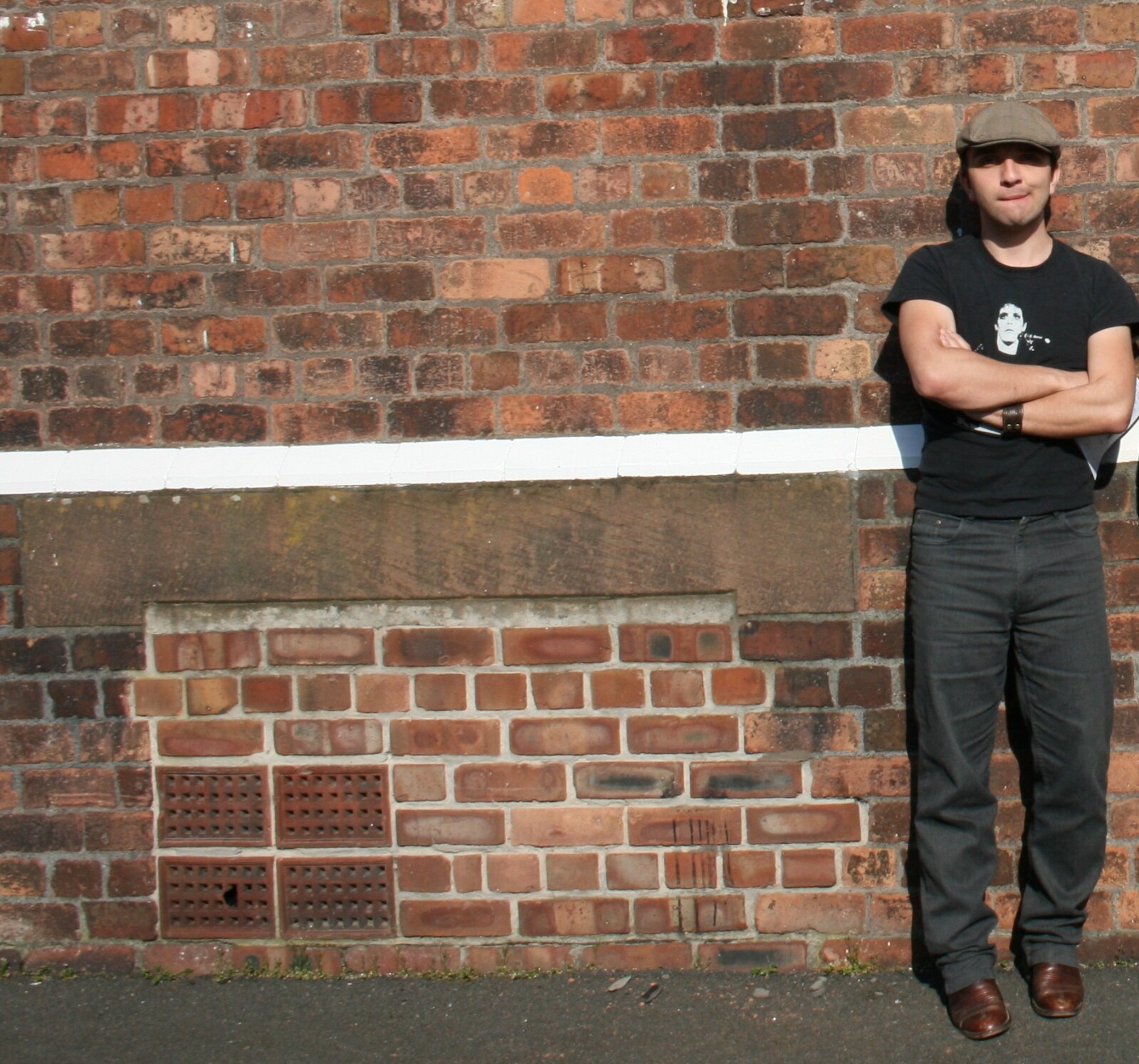
Speaking of Nigel Planer, I really liked his performance in the ITV/Netflix series ‘Marcella’ and you recently collaborated with him on his own mini-album ‘Five Songs Left’, wherein he finally recorded songs he wrote 50 years ago. How did the project come about?
Nigel has always been one of my favourite actors. After he recorded the monologues for ‘In A Strange Slumber’ back in 2014, he gave me his email address and we started talking. He told me he had these songs, some from forty-dd years ago, and wondered if I might record some with him and his brother. We did a single in 2015 called ‘Mean Meanwhile’ under the name Rainsmoke but it kind of fizzled out. Following that he did some backing vocals on a Dodson album, some VO for a couple of my art films and then at the start of lockdown just me and him did another single. Then we started working on these old songs that he really wanted to get out there after fifty years. Honestly, it was so much fun working on them, doing the mixing, guitar and vocals, just helping bring these old songs to life for him. He is actually a great singer and songwriter and his lyrics are brilliant.
It’s a fascinating recreation of the ambience of the early ‘70s singer/songwriter milieu that doesn’t force 21st century technology onto these organic tracks. Do you know if this is something Nigel would like to expand into a full-length collaboration or was it just a matter of using free time during lockdown restrictions to revisit his past?
We are actually working on some more now, four more of his old lost songs. I think he is going to call it ‘Four Songs More’, a play on the Nick Drake album [‘Five Leaves Left’]. I know he has recorded some tracks with other people too, so I think he is taking advantage of this era to get some things done he’s never quite had the time to do. I’m honoured to be a part of it with him. He’s a great bloke.
Nigel also narrated your audiobook ‘Raymond’s Room’ and your short film ‘The Apple Picker’. Did you have him in mind when you were creating these projects or did you reach out to him after they were completed?
‘Raymond’s Room’ was written with him in mind, but I didn’t know if he’d say yes. He narrates it brilliantly I think. I’m really proud of it. Not many people have discovered it sadly but that’s OK, these things have a long life. With ‘The Apple Picker’ I just asked if he could maybe record a couple of bits for the film and he said yes. Even though he is a busy actor in demand he always takes time out to do these weird little things for this odd ball Northerner he has pestering him!
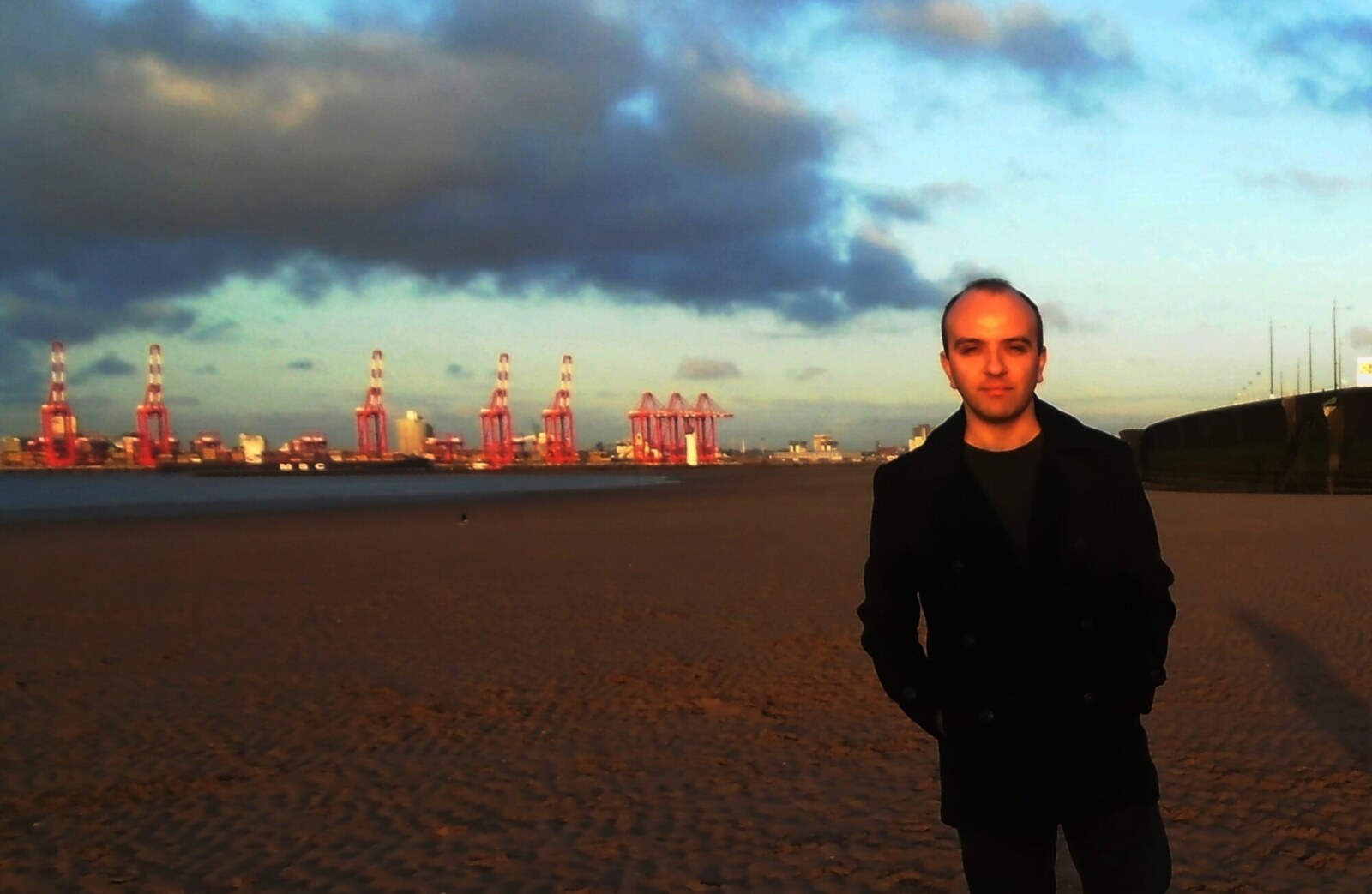
Tell us what you’re working on next. You have more films and albums in progress or are you just going to sit back and relax and hope that 2021 brings us a better, safer world. Perhaps you’ll be able to perform live someday soon. I don’t recall ever seeing any information on live gigs. Have you ever had the chance to play out and how did that work out?
I am working on a new edition of my book on the classic Sergio Leone film, ‘Once Upon a Time in America’. I interviewed one of its stars a few weeks ago, the great James Woods, and I might be talking to another of its main stars… fingers crossed. I am also putting together the third issue of my film publication, ‘Scenes’, which I put out every few months. It has articles on cult and classic movies, plus interviews and other bits and pieces. I will be working on music with Nigel and I am also getting ideas together for a new Dodson and Fogg album. I have started filming material for a short film too, and I am in the process of making a documentary on Alfred Hitchcock. I recently made one on Marlene Dietrich, with the involvement of her grandson. I also have another couple of books I hope to get to in the next few months. Apart from that I will be eating Onken yoghurt…. and hoping that COVID sods off pretty soon. Chris Wade
Jeff Penczak
Dodson And Fogg Official Website / Facebook / Twitter / Bandcamp

